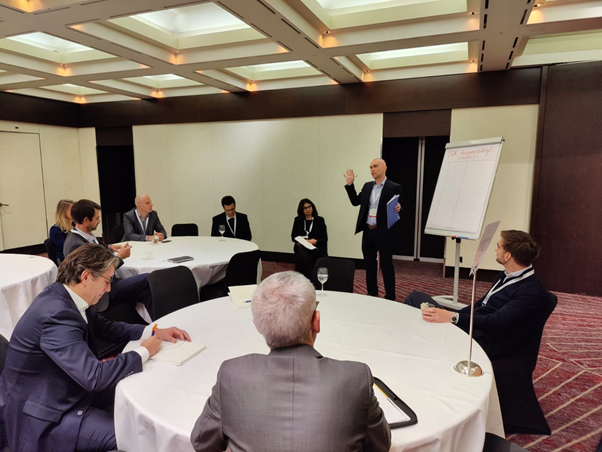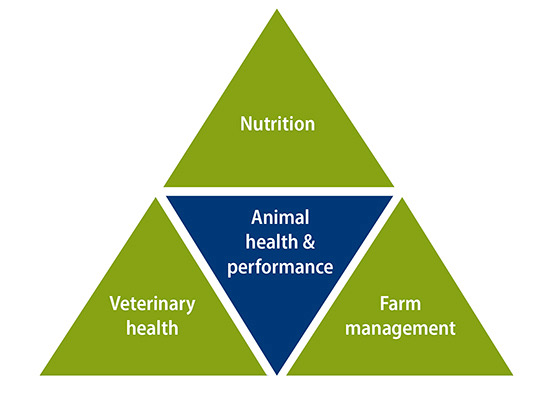The FeedInfo Summit held in Geneva is the first of its kind within our industry focused on shaping the future of the animal nutrition and feed industry. It was an opportunity for industry leaders in the animal nutrition and feed industry to get together to address some of the biggest issues our industry is facing today.
As part of the wider discussion of the FeedInfo Summit, digitalization, big data, and methods to extract and analyse data are clearly seen as a significant part of the future of our industry. Through such tools real time analysis and adjustments to production allow for more accurate resource use. This optimizes not only the economics of animal production but also the sustainability of our industry. Through early detection of problems and data analysis the optimization of feed utilization, antibiotics, energy, pesticides, etc. can be achieved improving overall sustainability of our industry.
There were several discussions about the animal protein industry and the public perception of our industry, especially from a sustainability perspective. One of the take home messages were that we as an industry are and will continue to be a significant part of the human nutrition. However, we should as an industry be better at engaging and sharing our story about how we are part of the solution and not part of the problem.
As a co-sponsor of the event Innovad’s contribution to the discussions was as part of a roundtable discussion with the topic “How can the industry play a role in diagnosing health issues, and should we?”, led by Dr. Christos Gougoulias, Head of Innovation.

Participants from Nutreco, AB Vista, Olmix, Norfeed, Cargill and others representing a wide range of feed and additive players were present. Much of the discussion was around our position as an industry and our unique position to be able to play a role in the future of animal health. Where we see ourselves as one of three key elements in supporting animal health and performance.

Interestingly, there was a consensus early in the discussion that we as an industry have a significant interest in health issues, but not necessarily a direct responsibility in diagnosing them. We also all recognize that as animal production evolves, fewer health issues are overtly presented as clinical problems. These problems, traditionally the domain of the veterinarian, are for a large part under control today. Our function as nutritionists and feed additive producers is therefore focused on prevention rather than cure, where the veterinarian often takes over where a treatment is needed. Production performance problems related to health are of a less obvious nature today as they are often subclinical or difficult to detect and manifest as ‘less than optimal’ performance.
Technologies like MycoMarker® that can detect or help diagnose issues that are causing suboptimal performance are very relevant for the future and ideally as an industry we should be pursuing technologies that can help us detect and intervene in subclinical issues. These can include direct diagnostic tools like MycoMarker®, but data gathered over time can also offer significant insights into ‘out of the norm’ performance issues.